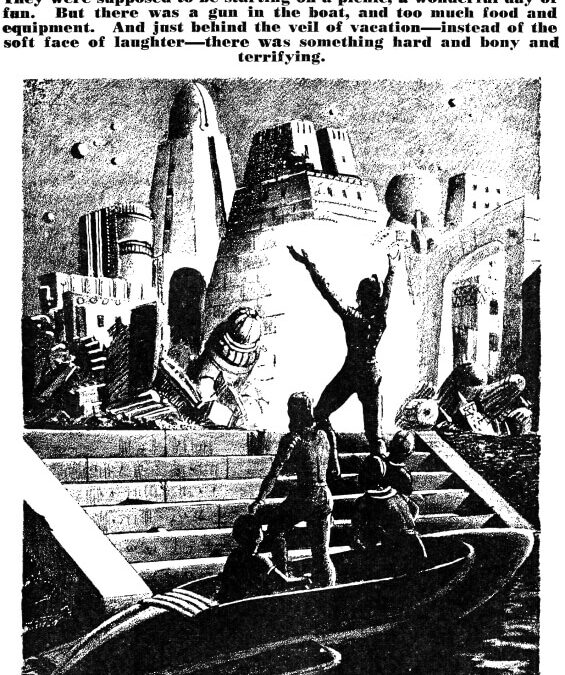 Bradbury’s “The Million Year Picnic” is a sad metaphor about what a picnic is not—a family’s escape from Earth to build a new Eden on Mars. We don’t know how it ends because this is the final story in the collection of The Martian...
Bradbury’s “The Million Year Picnic” is a sad metaphor about what a picnic is not—a family’s escape from Earth to build a new Eden on Mars. We don’t know how it ends because this is the final story in the collection of The Martian...
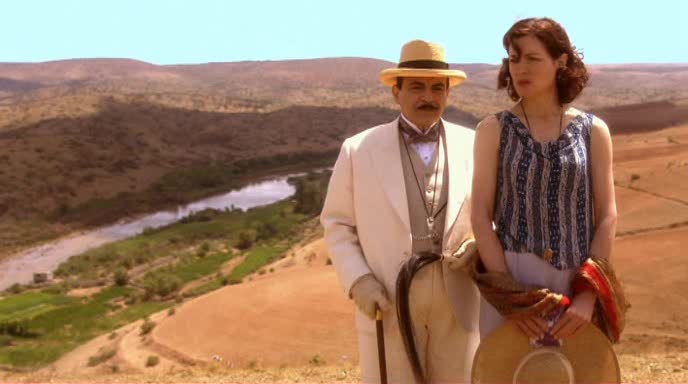 Christie’s picnic at Kawkab in Syria was indelible because the dessert was in bloom. During an archeological dig in 1934 (?), Christie and Max Mallowan* packed a lorry named Queen Mary for sightseeing at Kawkab, a hill about 300 meters high. They expected an...
Christie’s picnic at Kawkab in Syria was indelible because the dessert was in bloom. During an archeological dig in 1934 (?), Christie and Max Mallowan* packed a lorry named Queen Mary for sightseeing at Kawkab, a hill about 300 meters high. They expected an...
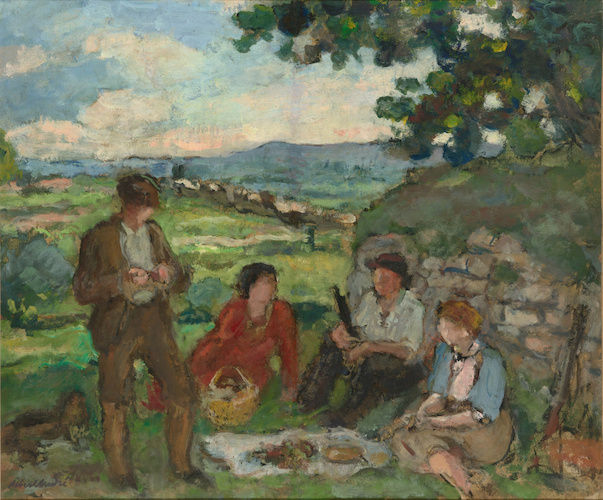 Albert’s Le repos des chasseurs, aka Hunters’ Rest is a scaled down version of the Halt on the Hunt. The simple menu is bread ,fruit, and wine.
Albert’s Le repos des chasseurs, aka Hunters’ Rest is a scaled down version of the Halt on the Hunt. The simple menu is bread ,fruit, and wine.
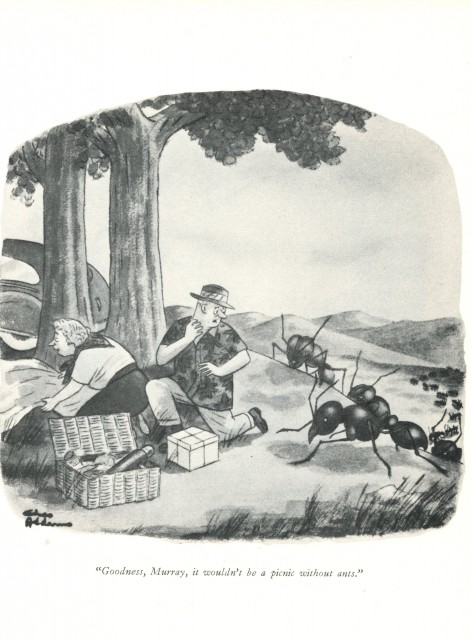 Charles Addams. “Goodness, Murray, it wouldn’t be a picnic without ants.” The New Yorker (June 11, 1949)
Charles Addams. “Goodness, Murray, it wouldn’t be a picnic without ants.” The New Yorker (June 11, 1949)
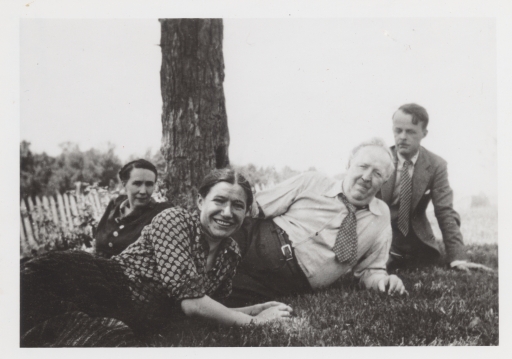 Gordon’s picnic is a snapshot of the Fayerlees and Meriwether’s Southern family reunion. It’s an August tradition for more than one hundred folks from all over the South and elsewhere. It’s not a happy day. As revealed by Sally Maury, who was...
Gordon’s picnic is a snapshot of the Fayerlees and Meriwether’s Southern family reunion. It’s an August tradition for more than one hundred folks from all over the South and elsewhere. It’s not a happy day. As revealed by Sally Maury, who was...
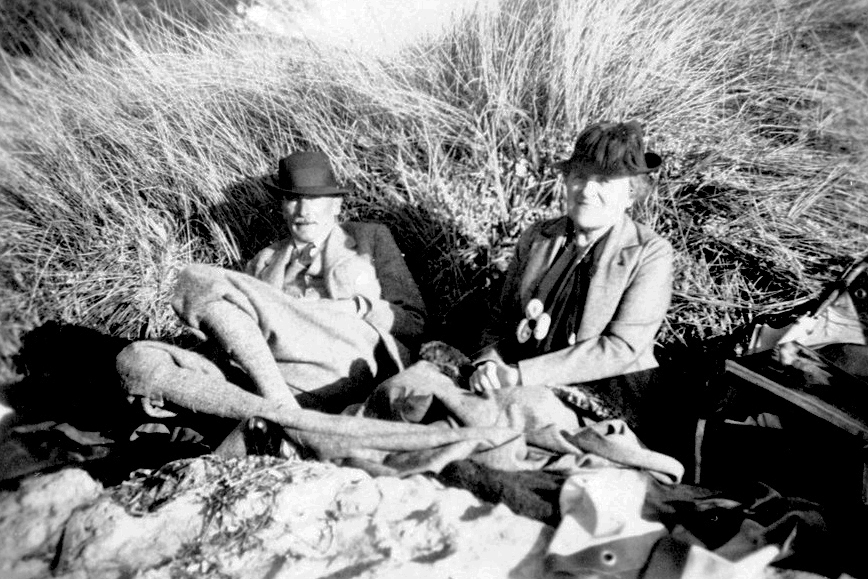 Norton recalls Edith Wharton “had a passion for picnics, a passion not shared by quite all of her guests, some of whom, unskilled at balancing a loaded plate on their knees, would have secretly preferred a hot square meal served on solid mahogany: but they dared not...
Norton recalls Edith Wharton “had a passion for picnics, a passion not shared by quite all of her guests, some of whom, unskilled at balancing a loaded plate on their knees, would have secretly preferred a hot square meal served on solid mahogany: but they dared not...
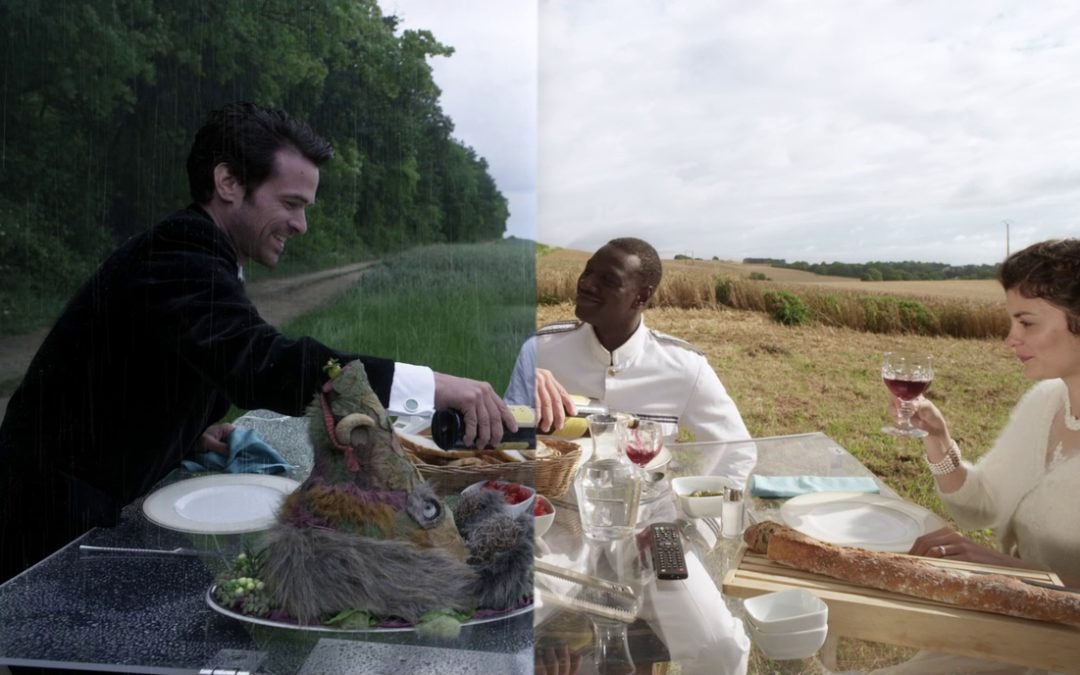 Vian’s L’Écume des jours is variously translated as The Foam of Days, The Scum of Days, or Froth on the Daydream. Take your pick. It was filmed by Charles Belmont as Spray of Days (1968) and retold as an opera by Edison Denisov (1986). It was without a picnic until...
Vian’s L’Écume des jours is variously translated as The Foam of Days, The Scum of Days, or Froth on the Daydream. Take your pick. It was filmed by Charles Belmont as Spray of Days (1968) and retold as an opera by Edison Denisov (1986). It was without a picnic until...
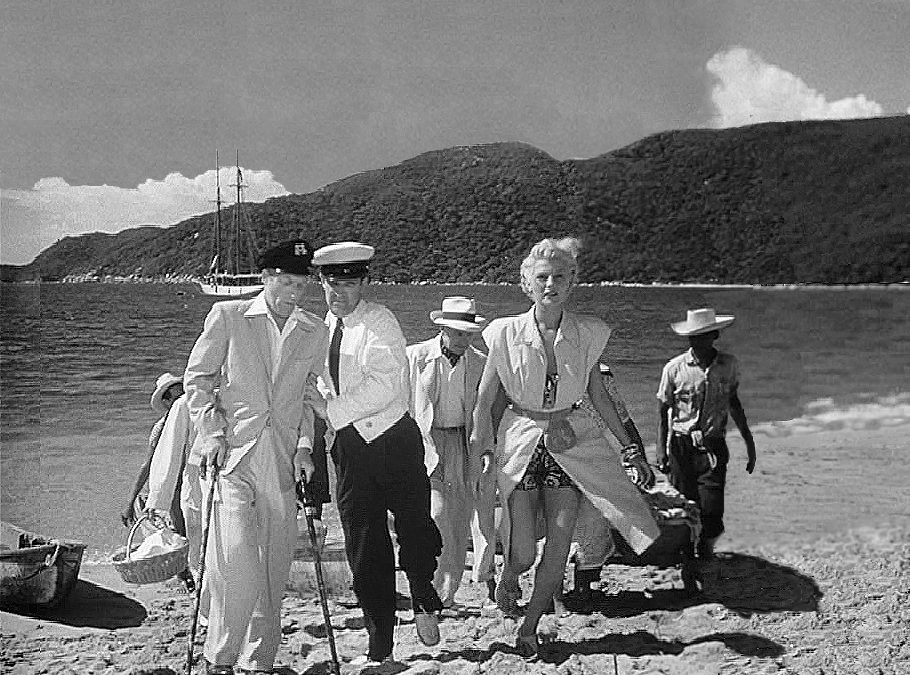 Imagine a noir picnic at which you tell your hosts a shark-feeding-frenzy story. That’s Orson Welles’ idea of dark times in The Lady from Shanghai. Imagine, too, that the story told by Michael O’Hara is intended as an allusion to his host and...
Imagine a noir picnic at which you tell your hosts a shark-feeding-frenzy story. That’s Orson Welles’ idea of dark times in The Lady from Shanghai. Imagine, too, that the story told by Michael O’Hara is intended as an allusion to his host and...
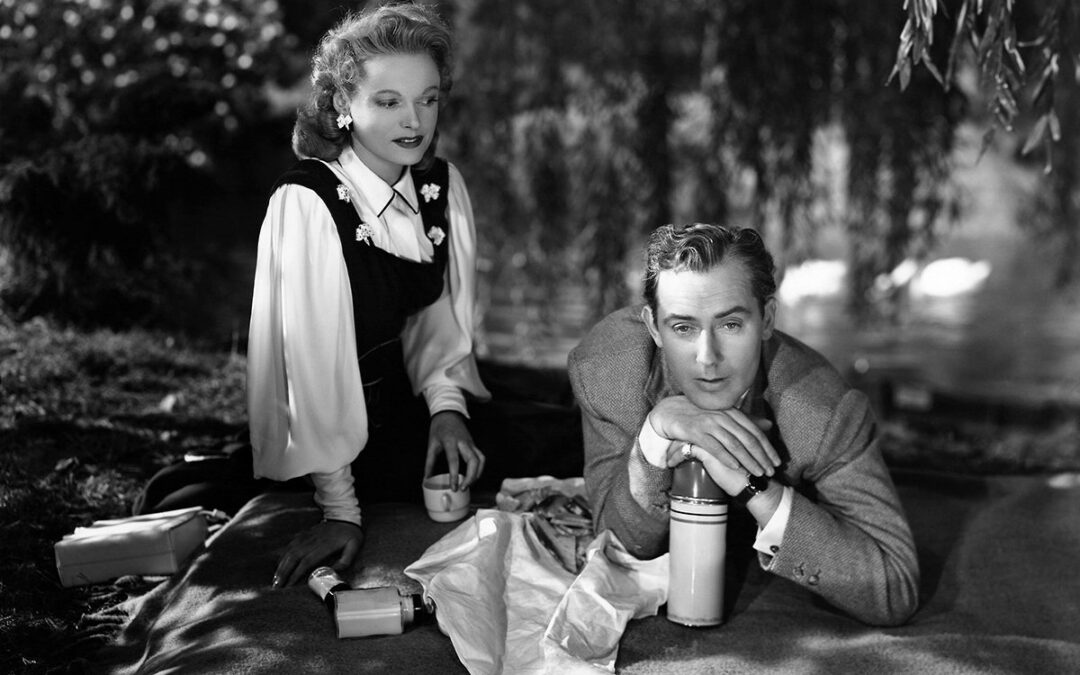 A picnic in the park is a perfect situation for accommodating a would-be lover. Suspicious that her footman Richard is not what he pretends to be, Judy allows him to picnic with him on the Serpentine in Hyde Park. The conversation is rapid-fire and full of innuendo...
A picnic in the park is a perfect situation for accommodating a would-be lover. Suspicious that her footman Richard is not what he pretends to be, Judy allows him to picnic with him on the Serpentine in Hyde Park. The conversation is rapid-fire and full of innuendo...
![Laurent de Brunhoff’s Babar’s Picnic [Pique-nique Chez Babar] (1949)](https://picnicwit.com/wp-content/uploads/2014/01/Laurent-de-Brunhoff.-Babars-Picnic-1949-1080x675.jpg) Why De Brunhoff allowed this title Babar’s Picnic is a muddle. It’s not about Babar’s picnic! It’s about the young elephants’ picnic and their adventures. Importantly, the story’s portrayal of African Blacks and Native Americans was...
Why De Brunhoff allowed this title Babar’s Picnic is a muddle. It’s not about Babar’s picnic! It’s about the young elephants’ picnic and their adventures. Importantly, the story’s portrayal of African Blacks and Native Americans was...










![Laurent de Brunhoff’s Babar’s Picnic [Pique-nique Chez Babar] (1949)](https://picnicwit.com/wp-content/uploads/2014/01/Laurent-de-Brunhoff.-Babars-Picnic-1949-1080x675.jpg)
